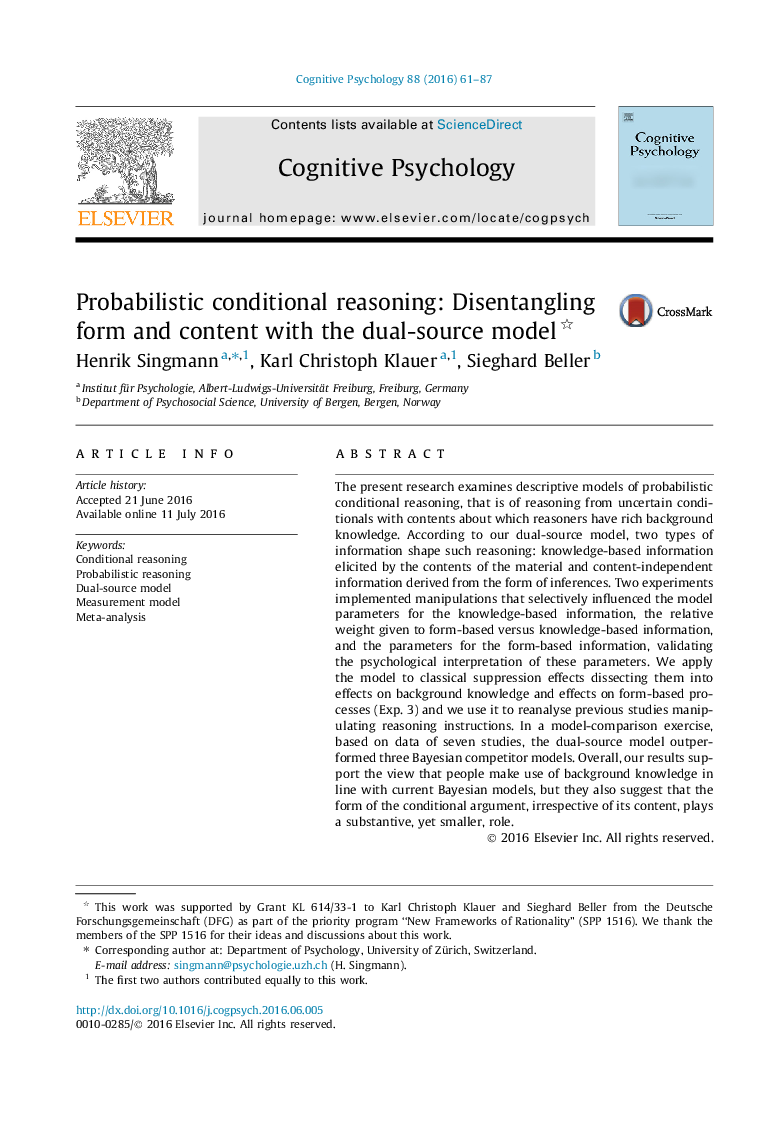| Article ID | Journal | Published Year | Pages | File Type |
|---|---|---|---|---|
| 7272726 | Cognitive Psychology | 2016 | 27 Pages |
Abstract
The present research examines descriptive models of probabilistic conditional reasoning, that is of reasoning from uncertain conditionals with contents about which reasoners have rich background knowledge. According to our dual-source model, two types of information shape such reasoning: knowledge-based information elicited by the contents of the material and content-independent information derived from the form of inferences. Two experiments implemented manipulations that selectively influenced the model parameters for the knowledge-based information, the relative weight given to form-based versus knowledge-based information, and the parameters for the form-based information, validating the psychological interpretation of these parameters. We apply the model to classical suppression effects dissecting them into effects on background knowledge and effects on form-based processes (Exp. 3) and we use it to reanalyse previous studies manipulating reasoning instructions. In a model-comparison exercise, based on data of seven studies, the dual-source model outperformed three Bayesian competitor models. Overall, our results support the view that people make use of background knowledge in line with current Bayesian models, but they also suggest that the form of the conditional argument, irrespective of its content, plays a substantive, yet smaller, role.
Related Topics
Life Sciences
Neuroscience
Cognitive Neuroscience
Authors
Henrik Singmann, Karl Christoph Klauer, Sieghard Beller,
